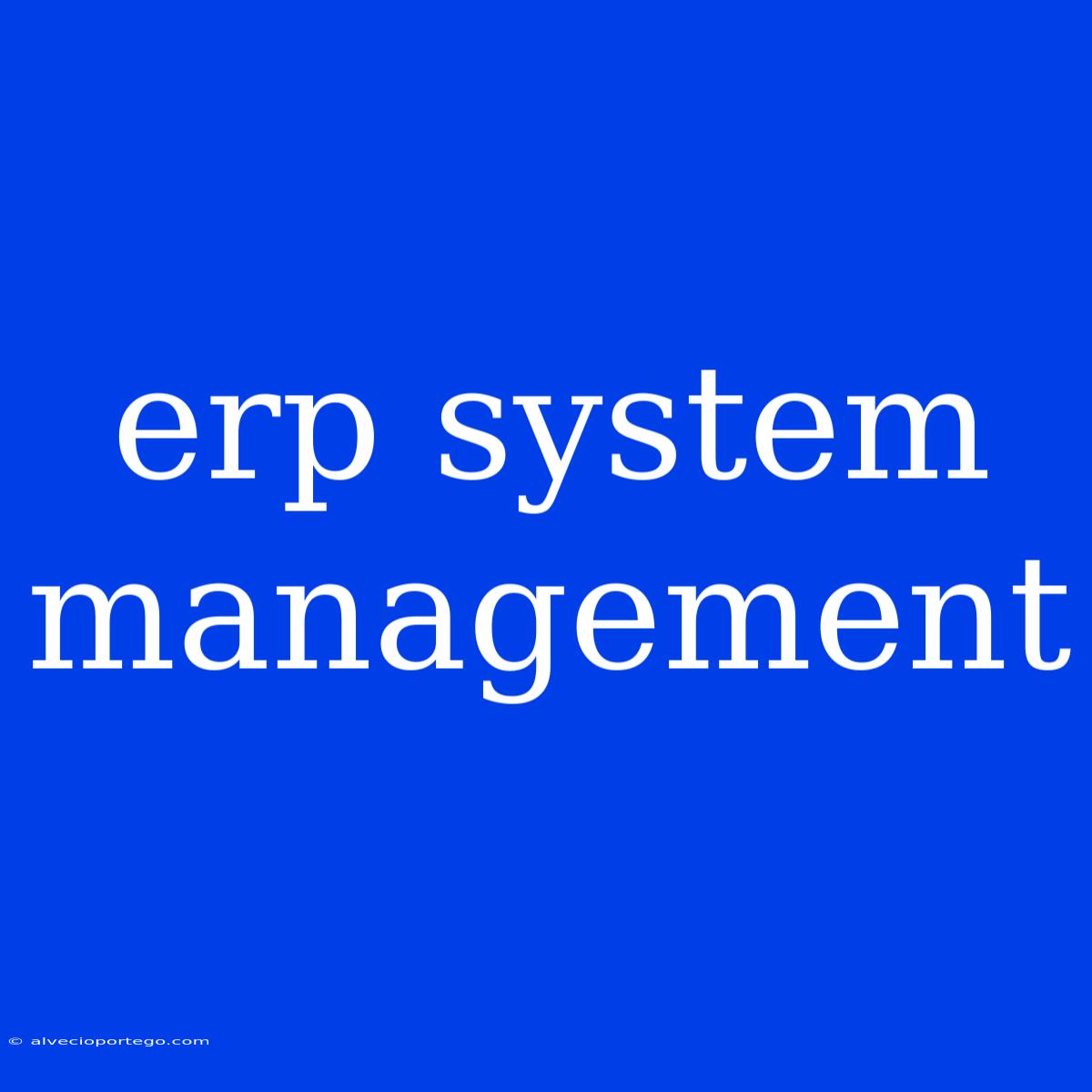ERP System Management: A Comprehensive Guide
An Enterprise Resource Planning (ERP) system is the backbone of modern businesses, integrating various departments and processes for streamlined operations. Implementing and managing an ERP system effectively requires a comprehensive approach to maximize its potential and reap its benefits.
What is ERP System Management?
ERP system management encompasses all aspects of implementing, customizing, maintaining, and optimizing an ERP system to ensure its smooth operation and alignment with a business's evolving needs. This includes:
- Implementation: Careful selection, configuration, and deployment of the ERP system, considering specific business requirements.
- Customization: Adapting the system to fit unique processes and workflows, including integrating existing systems and data.
- Maintenance: Regularly updating the system with new functionalities, security patches, and software upgrades.
- Optimization: Identifying areas for improvement and implementing changes to maximize system efficiency and user experience.
- Data Management: Ensuring data accuracy, security, and integrity, including data backup, recovery, and archiving.
- User Training: Providing adequate training to employees on how to use the ERP system effectively.
- Support & Troubleshooting: Providing prompt technical support and resolving any issues that arise.
Benefits of Effective ERP System Management
- Improved Operational Efficiency: Streamline workflows, eliminate redundant tasks, and enhance overall productivity.
- Enhanced Data Visibility and Insights: Gain a centralized view of business data, enabling better decision-making.
- Stronger Financial Control: Improve financial planning, budgeting, and reporting for better cost management.
- Increased Customer Satisfaction: Offer faster and more efficient customer service through better order management and inventory tracking.
- Enhanced Compliance and Risk Management: Ensure adherence to regulations and minimize risks by streamlining compliance processes.
- Scalability and Adaptability: Easily adapt the system to accommodate business growth and changing needs.
Key Elements of ERP System Management
- Clear Business Goals: Define specific objectives and outcomes to be achieved through ERP implementation.
- Strong Project Management: Implement a structured approach for planning, executing, and monitoring the ERP project.
- User Involvement: Actively engage users from various departments to ensure alignment with their needs and facilitate smooth adoption.
- Continuous Improvement: Regularly assess system performance, identify areas for improvement, and implement necessary changes.
- Collaboration with Vendors: Build a strong relationship with ERP vendor for ongoing support and updates.
Challenges of ERP System Management
- High Initial Investment: Implementing and customizing an ERP system can be costly.
- Complexity and Integration: Integrating the system with existing systems and data can be challenging.
- Change Management: Overcoming employee resistance to change and ensuring smooth adoption is crucial.
- Ongoing Maintenance and Support: Maintaining the system, updating it regularly, and providing technical support requires ongoing investment.
- Security and Data Integrity: Ensuring data security and integrity is vital to prevent data breaches and maintain system stability.
Conclusion
ERP system management is an ongoing process that requires a strategic and proactive approach. By prioritizing careful planning, user involvement, continuous improvement, and collaboration with vendors, businesses can successfully leverage their ERP systems to achieve significant operational efficiencies, improve data-driven decision-making, and ultimately drive business success.

